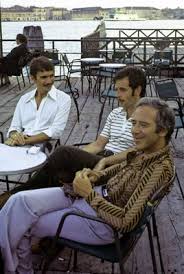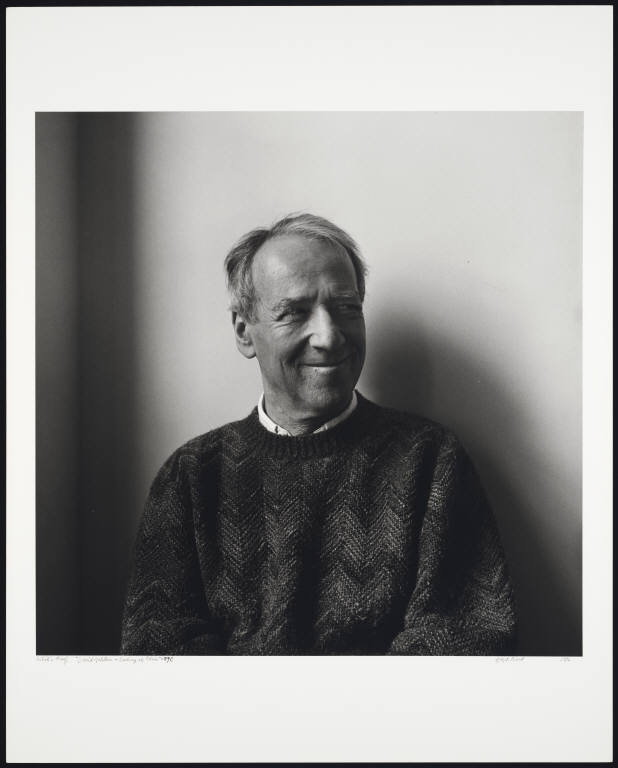

Queer Places:
University of Cambridge, 4 Mill Ln, Cambridge CB2 1RZ
Harvard University (Ivy League), 2 Kirkland St, Cambridge, MA 02138
Rutgers University, 77 Hamilton St, New Brunswick, NJ 08901
 David Kalstone (1933 – June 14, 1986) was an American writer and literary critic.[1]
David Kalstone (1933 – June 14, 1986) was an American writer and literary critic.[1]
Kalstone, born in McKeesport, Pennsylvania, was the recipient of a Fulbright Scholarship and studied at the University of Cambridge. He taught at Harvard University starting in 1959 and was a professor of English at Rutgers University from 1967 until his death.[2] An authority on the Elizabethan courtier poet Sir Philip Sidney, Kalstone also lectured and wrote about 20th-century poets including Elizabeth Bishop and Robert Lowell. His close friends included the poet James Merrill[3] and the writer Edmund White,[4] who is said to have modeled on Kalstone the character of Joshua in his 1997 novel, The Farewell Symphony.[5]
Just before I left, Richard introduced me to a person in New York who would become my best friend: David Kalstone. He was living not far from Howard Mosse in a sublet. He was a professor (he'd written a book on Sir Philip Sidney) at Rutgers, but I gathered he was in a state of change - wintering in New York City, summering in Venice, being outfitted with contact lenses and more up-to-date clothes, even writing about contemporary poets such as Bishop and James Merrill. None of that struck me at the time. What impressed me right away was how subtle and gentle and observant he was, though he was almost legally blind. He had a sweet, wise smile, eyes that blinked into the indistinct void around him, hands that made wonderful rounded gestures. Richard Howard treated him a bit as if he were a distinguished but dim cousin, but I felt right away that he could be a... playmate. Although Richard liked all of us to sit up straight and present to the world our best face and to say right off our cleverest remarks and to speak of our serious reading or our life-transforming experiences (the ballet, Angkor Wat, the Sistine Chapel), David would never jump through that hoop. He was completely obliging, but a slightly goofy sense of humor played over everything he touched. He didn't write as much as his friends expected, or so I gathered, but I guessed that was partly because he spent a lot of time at friendship. He was a generous, amused man and he liked me a lot, I could see, maybe because in a sense we were both newcomers. Although he was ten years older than I, he'd devoted less time than I to being a New Yorker, which in those days was something like a religious vocation, full of obvious penances and rarefied rewards --Edmund White in City Boy: My Life in New York During the 1960s and '70s

By
Robert Giard
Merrill wrote the introduction to Becoming a Poet, a study of Elizabeth Bishop and the influence of Marianne Moore and Robert Lowell in helping shape the younger poet's voice. Left incomplete at Kalstone's death due to AIDS, it was published (to considerable acclaim) in 1989.
My published books: